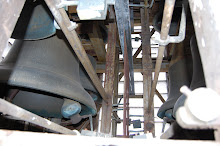By Andrew Lagassé
It can be found on the sidewalk, in the parking lot, or under the couch. It could be in the dryer, the car, or even in one’s pockets.
Loose change is everywhere, and in tough economic times, every penny counts. So why is it that many people don’t stop to pick up a couple of cents on the sidewalk?
Charles Lowe, head of the University of Connecticut’s psychology department, has a theory. “It could be because students are simply in a hurry to get somewhere,” says Lowe.
This seems to be the case for Ashley Sayadoff, a 4th semester pre-pharmacy major at UConn. “I’m not really looking for change on the ground,” says Sayadoff. “Even if I was, I wouldn’t have time to pick it up.”
Cleo Rahmy, also a UConn student, doesn’t bother to pick up change either. “Unless it’s a half-dollar or something very rare, I’m not going to bend down and get all dirty for a penny,” says Rahmy, an 8th semester English and education major.
If Rep. Jim Kolbe has his way, Rahmy may not have to worry about picking up or seeing any pennies on the ground.
Twice Kolbe has proposed legislation in Congress that would eliminate the penny. Both his 2001 and 2006 bill failed to make it to the House floor for a vote.
The Arizona representative said that the penny costs more to make than its face value. The U.S. Mint in it’s 2008 report concurred, citing, dramatic increases in the cost of zinc and other metals.
However, the U.S. Mint will release four new versions of the penny in 2009. Lincoln’s portrait will still appear on the “heads” side of the coin, but the “tails” side will depict four different scenes from Lincoln’s life, including his Illinois log cabin.
Robert Martel, a UConn economics professor, believes the penny is as important as every other coinage.
“We need fractional parts of a dollar, and coins are more durable than paper,” says Martel. “The lower the denomination, the faster the circulation.”
Coins are essential to U.S. currency, but they can also potentially influence a person’s mood.
A 1972 psychological study by Alice Isen and Paula Levin demonstrated the relationship between “feeling good” and helping by using loose change.
In the study, a dime was placed in the coin slot of a telephone booth. When someone went to make a phone call and unexpectedly found the dime, a woman would walk behind them and drop her papers on the ground.
The study showed that people who found the dime in the coin slot were more likely to spontaneously help the woman than those that didn’t find any money.
Aly Moreno, a UConn student, certainly feels good when she finds change on the ground. “I pick up change so I can save it all and cash it in.” Moreno, an 8th semester economics major, says last year she picked up around $15 in change.
“I remember I always walked around with my head down when I was a kid,” says Lowe. “My father told me to pick my head up when I was walking, so I did. A few steps later, he found a $5 bill on the ground.”
Sometimes it pays to keep your head down.
Tuesday, May 12, 2009
Subscribe to:
Post Comments (Atom)

No comments:
Post a Comment